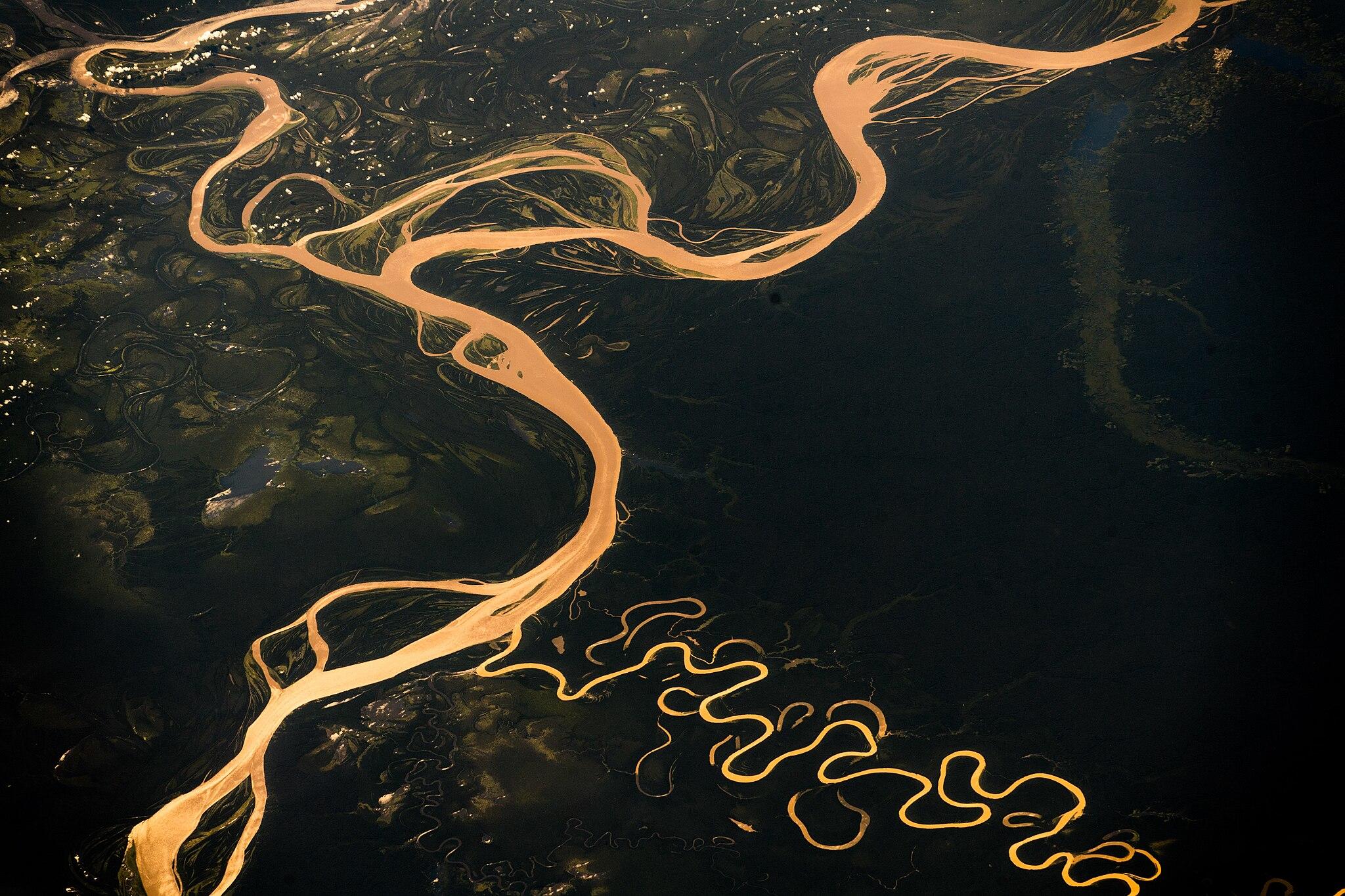Water is the most important resource on Earth. For thousands of years, humans needed to build their communities and civilizations where water was easy to access to survive and thrive. Even taking humans out of the equation, plants and animals worldwide are acutely attuned to their local sources of water for survival as well.
The longest river in the world has long been debated, and many students often ask which is the longest river in the world and how other major rivers compare. Below is a quick list of the world's longest river contenders, including the 2nd longest river in the world and other major waterways.

Top 10 Longest Rivers (Approx. Length & Location)
- Nile River — ~6,650 km; flows through northeastern Africa (Egypt, Sudan, South Sudan, Uganda).
- Amazon River — ~6,400 km; South America (Brazil, Peru, Colombia).
- Yangtze River — ~6,300 km; China.
- Mississippi–Missouri River System — ~6,275 km; United States.
- Yenisei–Angara–Selenge — ~5,539 km; Russia & Mongolia.
- Yellow River (Huang He) — ~5,464 km; China.
- Ob–Irtysh River System — ~5,410 km; Russia, Kazakhstan, China.
- Congo River — ~4,700 km; Central Africa (Congo Basin).
- Amur River — ~4,444 km; Russia & China border.
- Lena River — ~4,400 km; Siberia, Russia.
1. The Nile River - 6,695 km
The number one spot for the longest river in the world currently goes to the Nile River; however, it’s often disputed that the Amazon River should take the cake instead!
The Nile River, stretching 4,132 miles (6,650 km), holds the title of the longest river in the world. Originating from central Africa, it flows northward through northeastern Africa until it reaches the Mediterranean Sea. The river is fed by three main streams: the Blue Nile, the Atbara, and the White Nile.
The Nile River is historically famous for being the main source of water during Ancient Egyptian times, which is still true for many Egyptians and other Africans today. Isn’t it amazing that Cleopatra and Tutankhamen, and all the other incredible historical figures who lived in or visited Egypt likely drank water from, bathed in, and otherwise enjoyed the very same river that exists today? The Nile has been a cornerstone of African civilization since the Stone Age!
A tributary is a river that doesn’t flow into the sea or ocean. Instead, it meets and joins with other tributaries to form a larger river.
The River Nile is fed by two main tributaries: The White Nile and the Blue Nile. The White Nile begins from Lake Victoria, located at the intersection of Kenya, Tanzania, and Uganda. It flows North from Uganda to Sudan, where it meets the Blue Nile. The Blue Nile, which began at Lake Tana in Ethiopia, flows south, then west, north to join the White Nile in Khartoum, and together they join to form the Nile.
The water flows Northward and empties into the Mediterranean Sea. It is consistently full of nutrient-rich silt, which coats the surrounding land when it floods, ensuring healthy crops and a good harvest.
Today, there are a handful of dams designed to help the upstream people who rely on the Nile’s waters. These include the Zifta Barrage, the Asyūṭ Barrage, the Isnā Barrage, the Najʿ Hammādī Barrage, and the Aswān Dam. The Nile provides water to parts of Tanzania, Burundi, Rwanda, the Democratic Republic of the Congo, Kenya, Uganda, South Sudan, Ethiopia, Sudan, and Egypt. It has an average water discharge of 3,075 cubic meters per second.
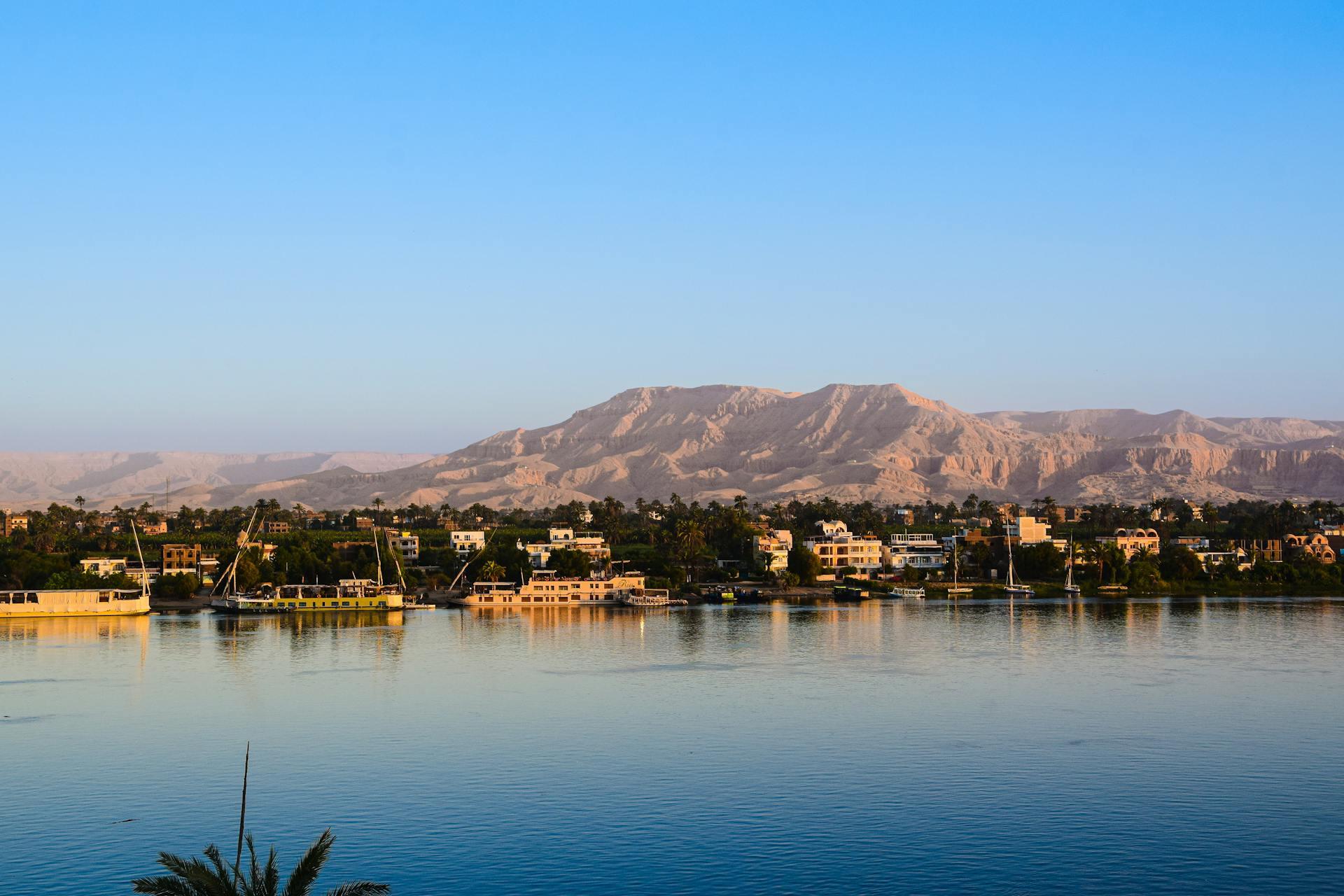
2. The Amazon River - 6,400 km
The Amazon River is the 2nd longest river in the world, but in some scientists’ hearts, it is the longest one because it’s unknown exactly where all the tributaries and sources are, since there are so many! There are over 1,100 known tributaries. Since the known length is comparable to the Nile, scientists estimate that there are probably more than enough tributaries that would add up to more kilometers than the Nile.
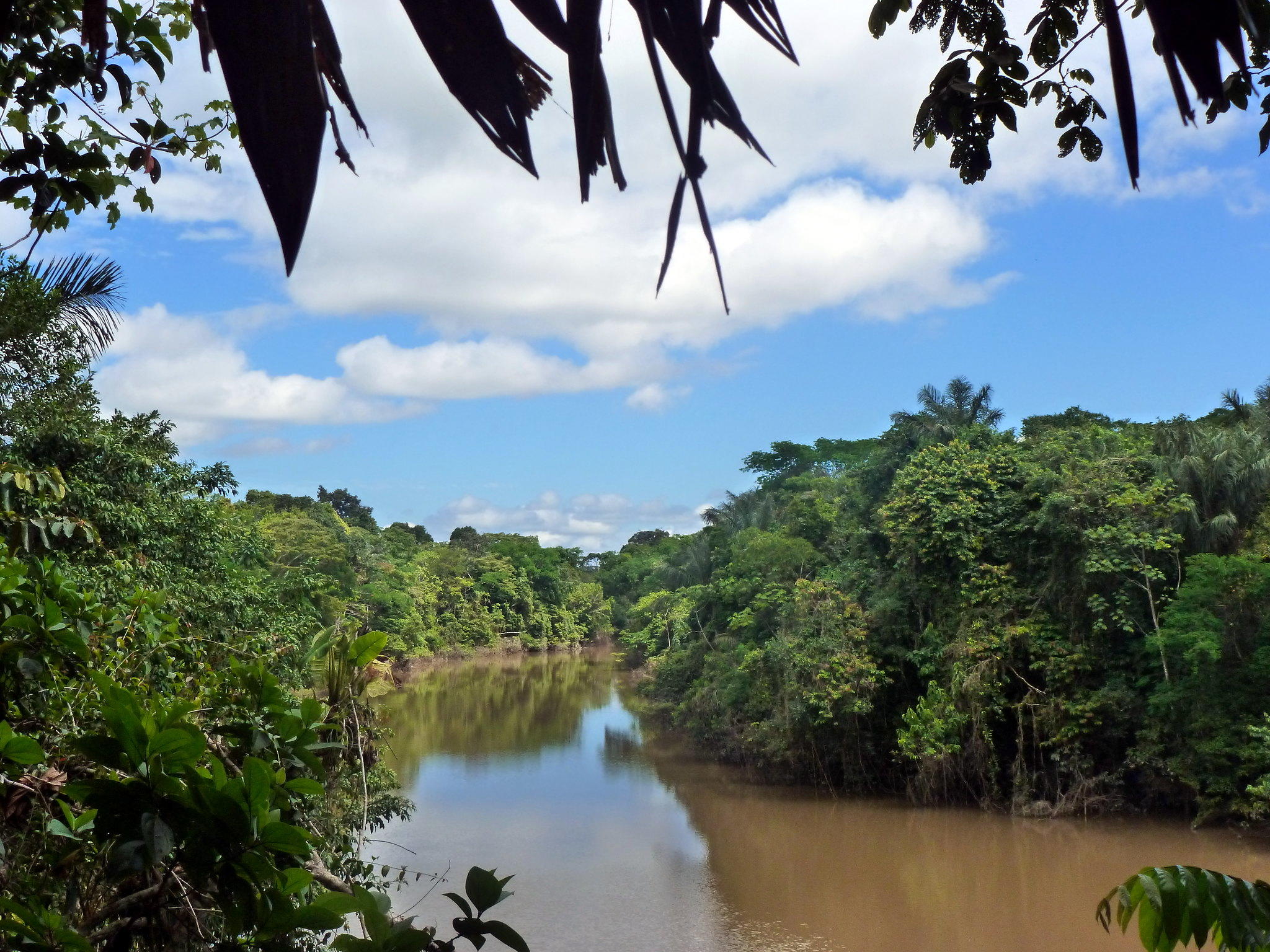
What’s certain is that it is by far the largest river in the world in terms of width and water discharge rates, with an average rate of 220,800 cubic meters per second flowing into the Atlantic Ocean. This massive amount of freshwater means that the Atlantic is less salty for about a 160 km radius of the estuary!
The area that provides most of the tributaries is the Andes Mountains in Peru, which sends glacial melt and rainwater down into the river. Two major tributary rivers from the Andes are the Apurímac and the Ucayali.
There are millions of different plants and animals living in and around the Amazon River, which flows Eastward through Peru, Colombia, and Brazil. The Amazon Basin also feeds most of the Amazon Rainforest.
A river basin is the land where things like snow and rain collect, then run together to create a small river. (As you know, these small rivers can then go on to become tributaries for larger rivers.) You’re likely to find small creeks, streams, and rivulets in river basins.
3. The Yangtze River - 6,300 km
Both the longest river in Asia and the longest river in the world that flows through only one country, the Yangtze River (sometimes spelled Yangzi), is an incredibly important river throughout Chinese history. Today, roughly ⅓ of the entire population of China lives close to the Yangtze’s basin, where ancient peoples were able to thrive. Additionally, about 400,000 people live right along the main river banks.
Built along the river is the Three Gorges Dam, located in Hubei Province. Construction began in 1994 and was completed in 2012, and today it is the largest hydroelectric facility in the world with the largest Ship Lock (five tiers) to boot!
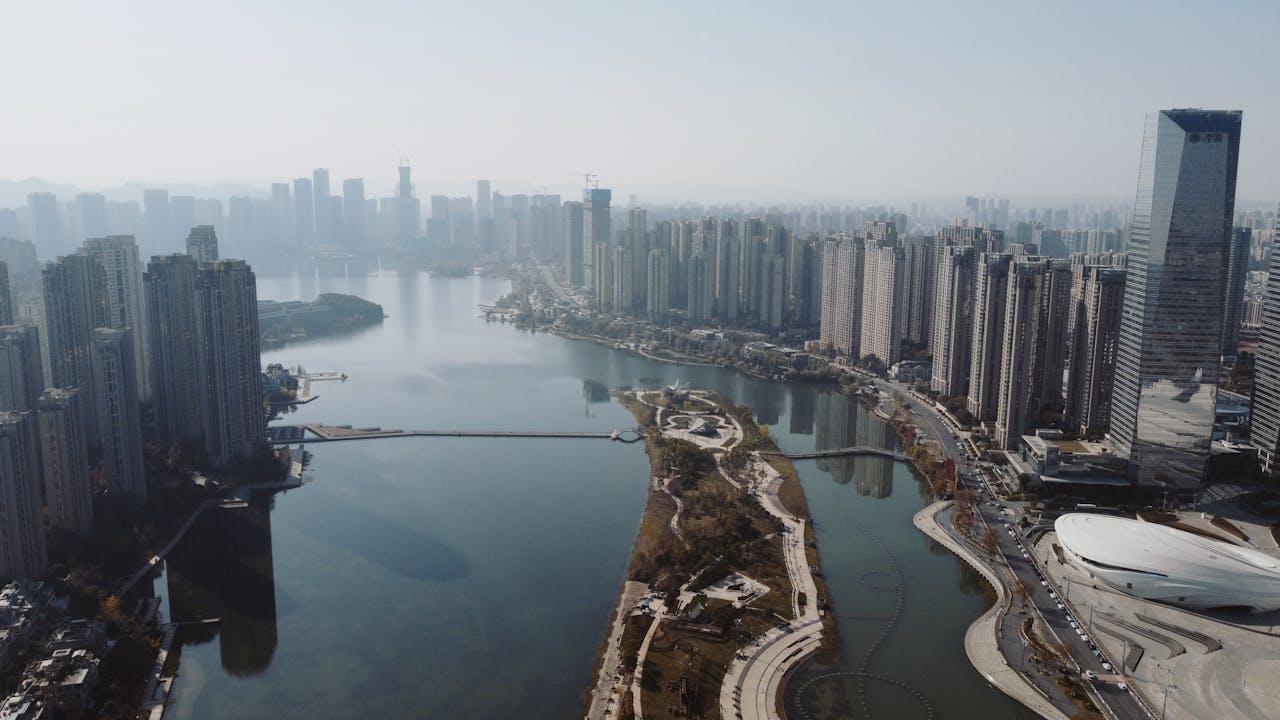
The Yangtze originates in the Tibetan Plateau, with the Dam Chu (aka Dangqu) and the Ulan Moron (aka Mar Qu) rivers in the Tanggula Mountains (aka Tangola Shanmai) of Qinghai, and flows Eastward to eventually empty into the East China Sea. It acts as an unofficial and convenient way to divide China into North and South.
4. Mississippi River - 5,971 km
The Mississippi River and the Missouri River connect to create the Mississippi River system, which is what makes it fourth on this list. By themselves, each river is too short to make the top 10.
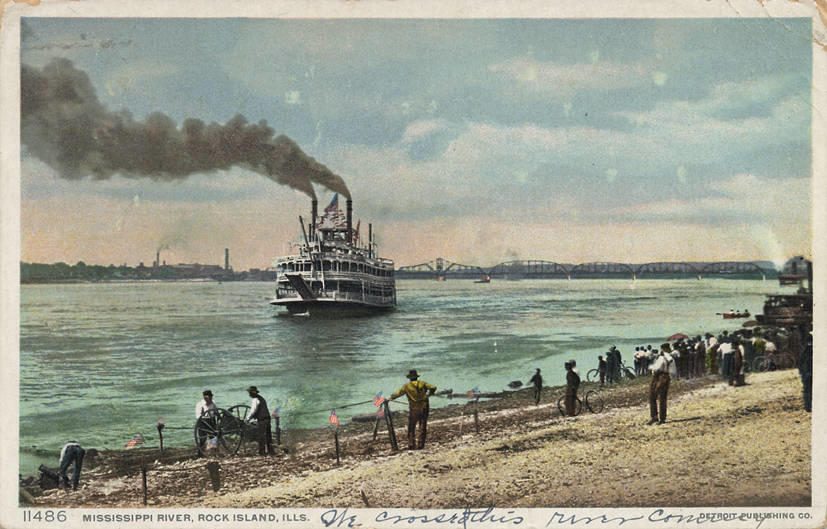
The source of the river is Lake Itasca in Northern Minnesota, where it then flows south and meets the Missouri River in St. Louis, Missouri, and then continues to empty into the Gulf of Mexico. The Missouri River begins in Montana and flows in a Southeasterly direction toward the Mississippi.
From Minnesota, the Mississippi flows through the states of Wisconsin, Iowa, Illinois, Missouri, Kentucky, Tennessee, Arkansas, Mississippi, and finally Louisiana.
It acts as a convenient way to divide the US into East and West.
A river's discharge rate is the amount of water the river sends into the ocean, sea, or lake via the river's mouth. The rate is measured in cubic meters (or feet) per second. Many rivers have varying discharge rates throughout the year, depending on whether the season is rainy or dry.

5. Yenisey River - 5,539 km
The Yenisey (also spelled Yenisei, Enisei, and Jenisej) River begins in the mountain range known as Mungaragiyn-Gol in Mongolia. The two major tributaries are the Little Yenisey River and the Great Yenisey River. It flows North to the region of Siberia in Russia and fills Lake Baikal, the oldest, deepest lake in the world. From there, it continues to empty into the Kara Sea and ultimately the Arctic Ocean. It is the largest river to flow into the Arctic.
The Taimyr reindeer herd, the largest reindeer population in the world, relies on the land near the river for grazing in the winter months.
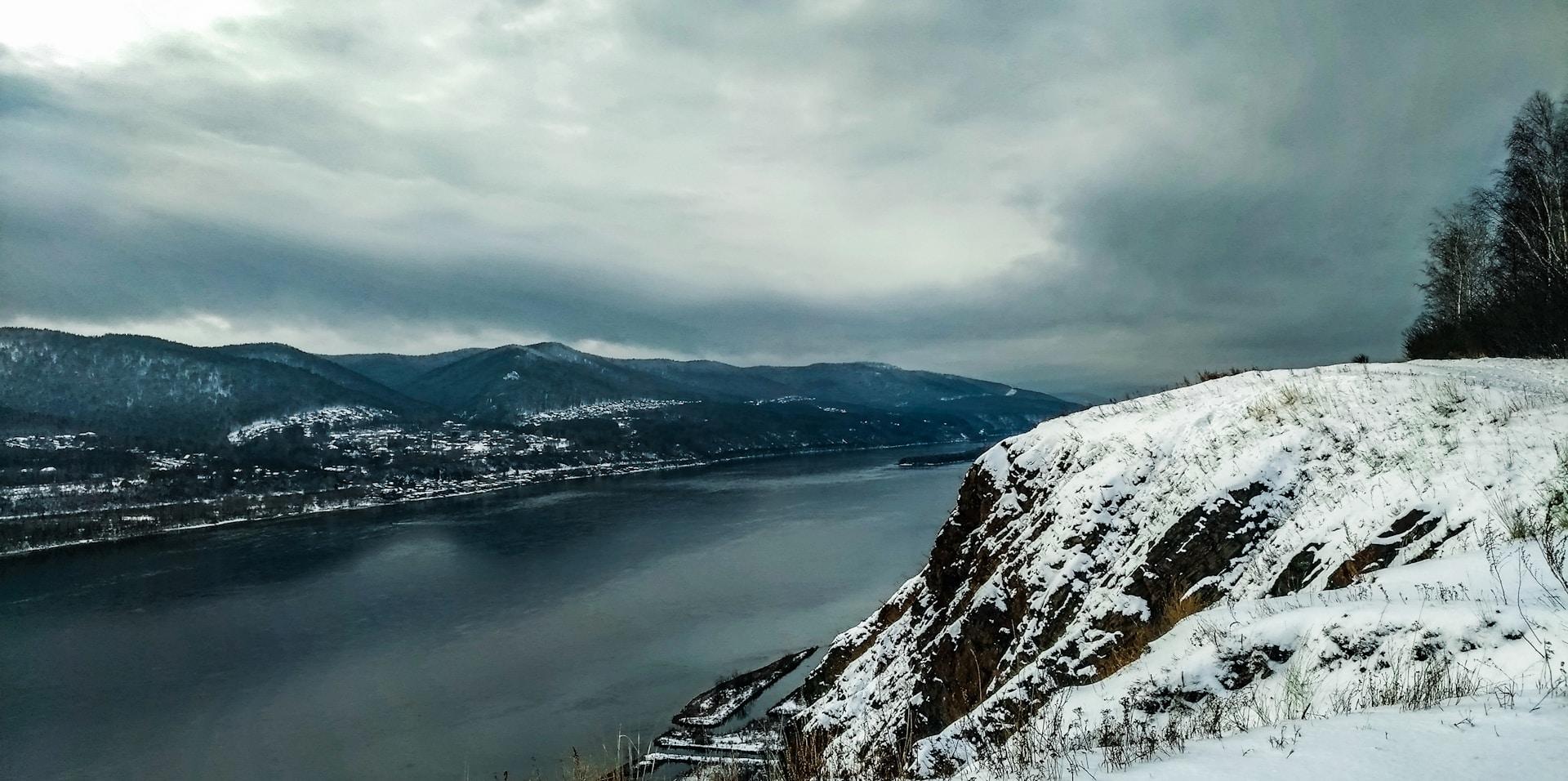
6. Yellow River - 5,464 km
The Yellow River is also often called the Huang He or Huang River. It originates in the Bayan Har Mountains, from the Yueguzonglie Basin, located in Qinghai Province. From there, it flows Eastward, filling Gyaring Lake and Ngoring Lake, before meandering in a Northwest to Northeast to South to Northeast pattern and finally emptying into the Bohai Sea.
It’s believed to have formed between 56 million and 34 million years ago, making it one of the cradles of civilization.
The material that causes the river’s yellow color is fine-grained loess from the Loess Plateau. It builds up in the river, creating undetectable underwater dams, eventually causing unexpected floods. The river has flooded over a thousand times that we know of, and as a result has changed its course about 26 times.
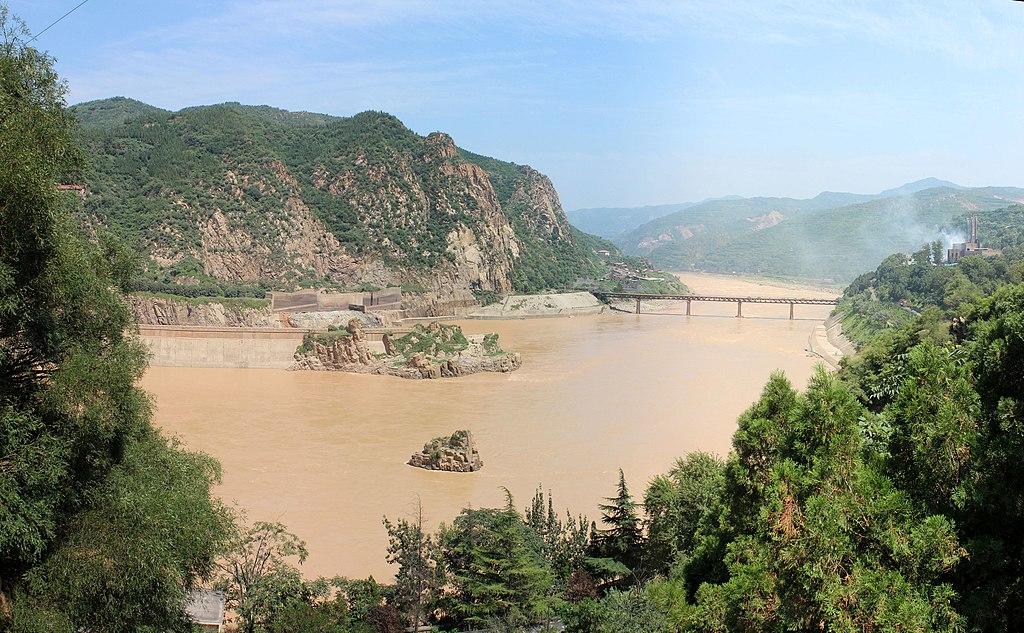
Despite these floods, which have been catastrophic several times in recorded history (most recently the 1931 flood that killed between 1 and 4 million people), the river was and is still a vital element to the ecosystem of China.
An estuary is the area where a freshwater river meets the sea or ocean.
7. Ob River - 5,410 km
The Ob River begins at the confluence of the Biya River and the Katun River in the Altai Republic region of Russia, in the Altai Mountains. It flows North, then Northwest, and then North to empty into the Gulf of Ob, which is the world's longest estuary. It passes through Mongolia, China, Kazakhstan, and Russia.
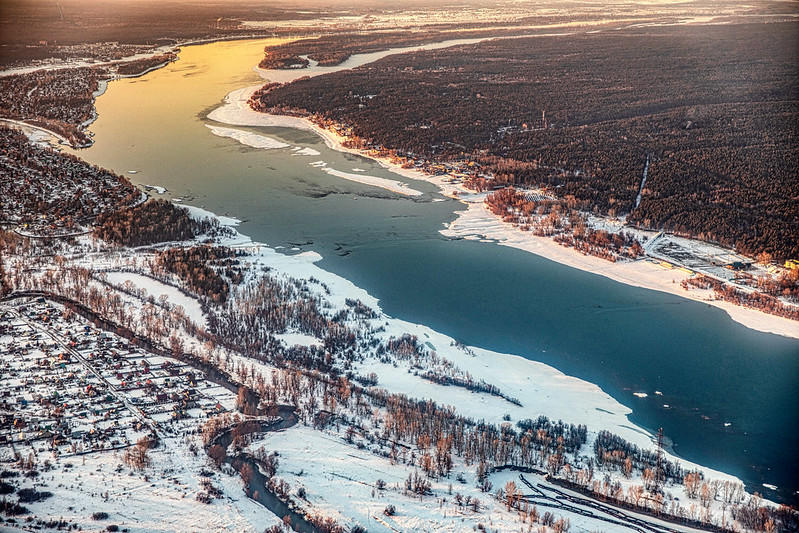
The river is important for agriculture and irrigation, providing drinking water (despite heavy pollution), fishing, and hydroelectric power.
For much of the year, different segments of the Ob River are frozen due to the extreme winter climate of the area.
8. Río de la Plata River - 4,880 km
Sometimes called The Plata River, the Spanish translation literally means “River of Silver.” While the Plata by itself is only about 290 km in length, it forms a system with the Paraná, Rio Grande, and Uruguay Rivers. The mouth of the river system is made up mostly of the Plata, which can be considered an estuary, a gulf, or a marginal sea in addition to a river.
The estuary portion of the river system means that salt and fresh water mix to create brackish waters. Salt water from the Atlantic washes backwards into the river, and another result of this arrangement is that the river is influenced by the oceanic tides.
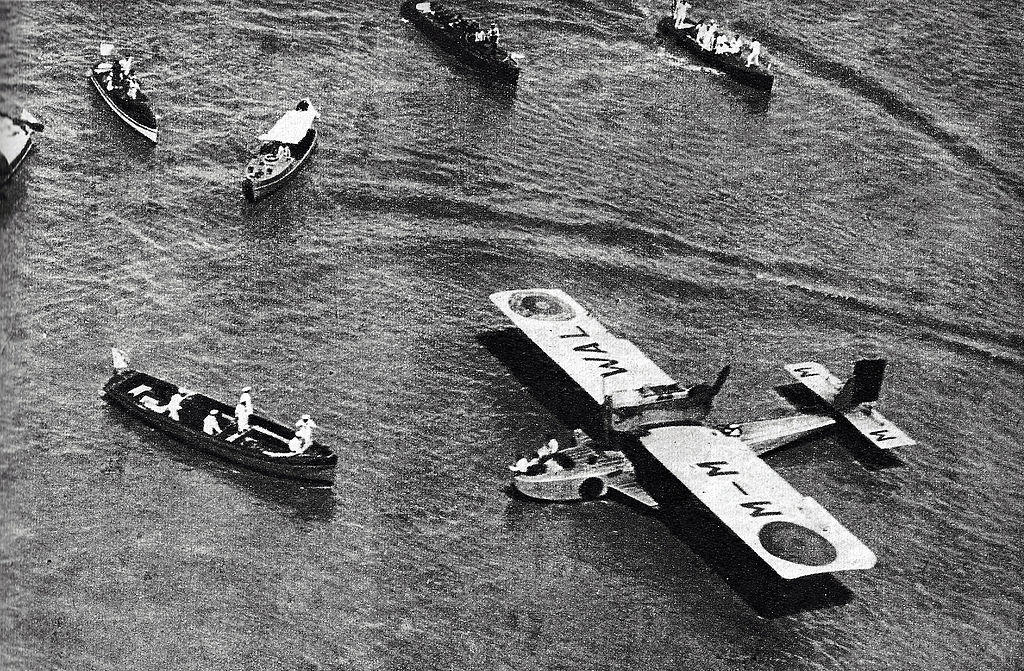
The river system flows to the South, beginning in Brazil and traveling through Bolivia, Paraguay, Uruguay, and Argentina, before emptying into the Atlantic Ocean.
9. Congo River - 4,700 km
Sometimes called the Zaire River, the Congo is the deepest river in the world. The main tributary of the Congo is the Lualaba River, and the entire system consists of the Congo, Lualaba, Luvua, Luapula, and Chambeshi Rivers together.
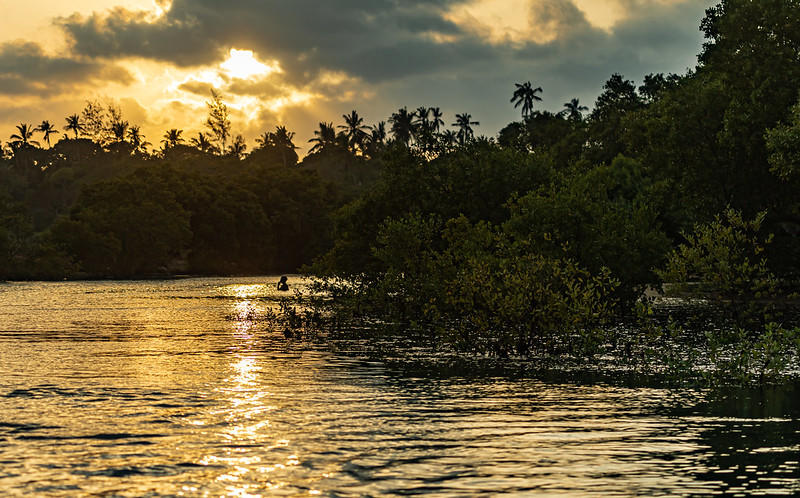
The origin of the river system is Boyoma Falls in the Tshopo Province of the Democratic Republic of the Congo. It flows northward, then Eastward, then south until emptying into the Atlantic Ocean.
The river itself is contained within the DRC, but the basin is spread across several countries and is largely located within the Congo Rainforest.
The Congo has been a historically important river, supplying the indigenous Bantu people with water for centuries. Today, it is also important for hydroelectric power.
When talking about rivers, a confluence is where two or more bodies of water meet and join together. For example, when tributaries merge together, the point where they meet is the confluence.
10. Amur River - 4,444 km
The source of the Amur River (sometimes called the Heilong River) is the Argun River located on the China-Russia border. Two other major tributaries are the Onon and Shilka Rivers. The Amur acts as a border between Far East Russia and Northeast China.
The river snakes in an Easterly direction before finally emptying into the Strait of Tartary, which is part of the Sea of Okhotsk and the Pacific Ocean.
The original inhabitants of the Amur Valley, the Tungusic, Mongol (Daur), Ainu, and Nivkhs peoples, thrived from the plentiful fishing available in the river. They also remained rather unknown by outsiders like Europeans and Han Chinese until the 17th century.
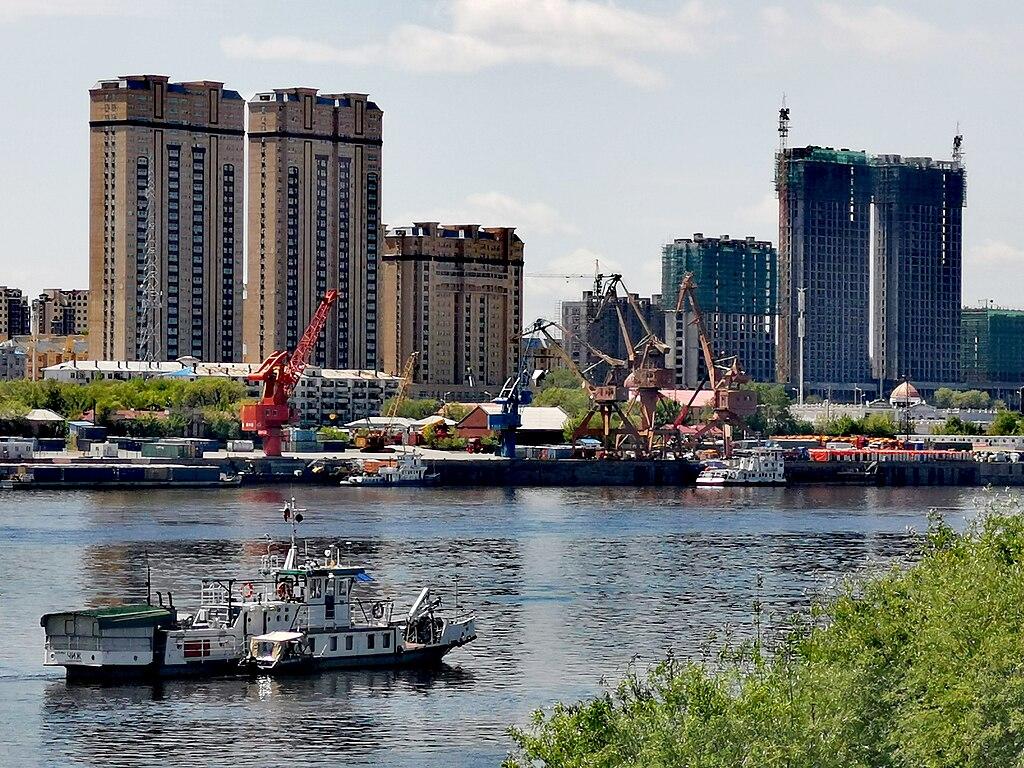
Rivers are like the veins of the Earth, and knowing how they snake across the land with a seemingly endless amount of water is endlessly fascinating! Now you know a little more about rivers all over the world and how they have influenced the land and people near them.
References
- Britannica https://www.britannica.com/topic/worlds-longest-rivers-2225894
- ScienceFocus.com hhttps://www.sciencefocus.com/planet-earth/longest-river-in-the-world
- WorldAtlas.com https://www.worldatlas.com/rivers/the-10-longest-rivers-in-the-world.html
- Wikipedia https://en.wikipedia.org/wiki/List_of_rivers_by_discharge
Summarise with AI:

